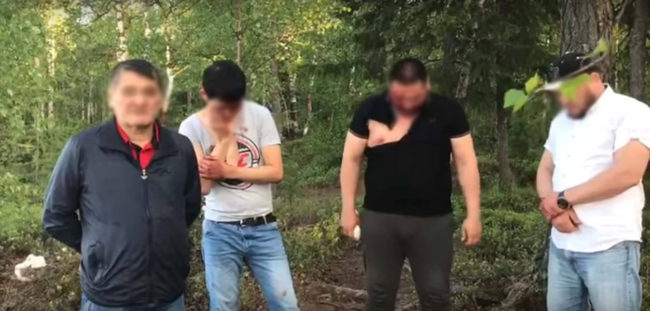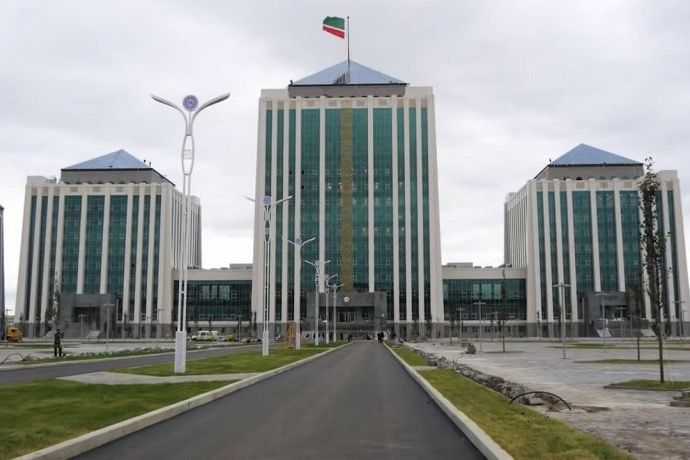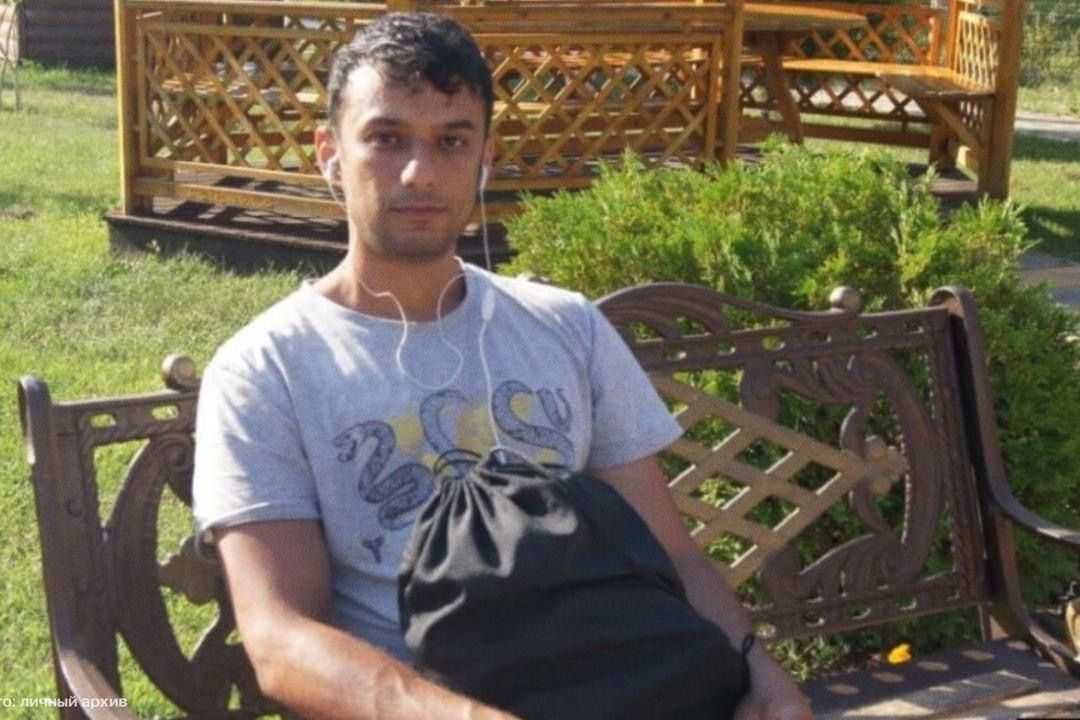

 For years, Chechnya’s Head Ramzan Kadyrov has demanded personal apologies — which he broadcasts on social media — for any perceived insult. This trend of public humiliation is now beginning to spread to neighbouring republics, first in Ingushetia, and now Daghestan.
For years, Chechnya’s Head Ramzan Kadyrov has demanded personal apologies — which he broadcasts on social media — for any perceived insult. This trend of public humiliation is now beginning to spread to neighbouring republics, first in Ingushetia, and now Daghestan.
On 12 July, a video appeared on YouTube with the apologies of two men from Nogay District — bruised and bloodied — who had previously made a video criticising the Head of Daghestan Ramazan Abdulatipov. The pair were flanked by two others, one of whom appeals to Abdulatipov to ‘forgive these misguided people in the name of Allah’.
[Read on OC Media: New head elected in Daghestan’s troubled Nogay District]
Leaders like Abdulatipov are already well protected from personal insults by Russian law. Penalties for ‘insulting representatives of authority’ range from a fine of up to ₽40,000 ($680) or three months income, compulsory work of up to 360 hours, or up to a year in a penal colony.
However, this one man’s drunken chatter apparently touched 71-year-old Ramazan Abdulatipov so greatly, that this was not enough.
‘Is lynch law normal for Daghestan?’
For Daghestan, this was the first time the relationship between ordinary citizens and the head of their republic has been clarified in such a way. Some people did not accept it.
YouTube user ProAntismus writes under the apology video, which was widely shared in Daghestan:
‘So, did they find the attackers? Do the police really work in the Russian Federation at all?!’
Another user, Ruslan Kiselev, also asks about this under this video:
‘Is lynch law normal for Daghestan? Is Daghestan even Russia?’
Daghestani lawyer Marat Ismailov says that a criminal case could be opened for the beating of the two young men.
‘In this case, I think it is worthwhile to file an appeal with the Prosecutor’s Office. Let them verify the beating and take all measures allowed within their jurisdiction. At the very least so that in Daghestan, such lynchings do not remain under the public radar. We cannot ever accept this; otherwise this lawlessness will become the norm’, Ismailov told Kavkaz.Realii.
This trend of public apologies — now spreading to other republic’s in the North Caucasus — originated in Chechnya. In Chechnya, this is also a relatively new phenomenon; ten years ago, most people could not have imagined that such a thing would be so commonplace in their republic.
These days, Chechnya’s head demands apologies for almost any perceived insult, no matter by a woman or a man, or even a teenager. The apologies are immediately uploaded to social networks.
Beyond Chechnya’s borders
The reach of Kadyrov’s forced apologies has long since passed beyond the borders of Chechnya. In a recent example, last year a local politician from Krasnoyarsk Krai, in Siberia, Konstantin Senchenko, uploaded a public apology for comments he made about Kadyrov. While in his criticism of Kadyrov, Senchenko used the familiar pronoun ‘you’, in his video apology his tone had taken on a far more deferential tone, addressing Chechnya’s head by his name and patronym.
The story captured the attention of the Russian and international media, with Novaya Gazeta publishing a long article — ‘The culture of political dialogue in Russia is rapidly being replaced by the law of the jungle’.
Author Aleksey Tarasov wrote that ‘Grown men, prominent by Krasnoyarsk standards, businessman, family men, after a few words spoken against Kadyrov bend over within a few hours — and this before the whole country. The finale is comedic, as the men take responsibility and the children apologise’.
In February, Chief Rabbi of Moscow Pinchas Goldschmidt declared that 99% of terrorists are Muslims, and that Jewish sites are the first target of terrorists in Europe.
A few days later, he released a video begging forgiveness from Kadyrov for his words.
[Read on OC Media: Moscow’s chief Rabbi apologises to Kadyrov for ‘offending Muslims’]
Kadyrov’s campaign of public shaming has now entered the zeitgeist in Russia, with Dozhd television journalists Pavel Lobkov and Ksenia Sobchak satirising it in their show. Ksenia Sobchak, kneeling with her hands tied behind her, thanked Kadyrov for not having shot her for an unpleasant question about Chechnya.
In Ingushetia
In neighbouring Ingushetia, despite its linguistic and cultural ties to Chechnya, public repentance and apologies have not entered so firmly into fashion. However, the authorities are taking steps in this direction.
Head of Ingushetia Yunus-Bek Yevkurov has proposed parading corrupt officials on television, and has ordered a special broadcast for this purpose.
‘We know that the FSB has detained some police officers who took bribes or that an employee in the migration service was arrested for taking a bribe, but society does not know’, Yevkurov said, explaining his decision.
Yevkurov has also proposed similar measures to publicly humiliate violators of traffic rules and Ingush students who receive poor grades in universities outside the republic.
There is no evidence that these campaigns have had the desired results, as traffic violations are still commonplace in Ingushetia and Ingush students are still far from perfect.
‘Convey to Oreshkin that I spit on him, too’
‘The desire to humiliate a person, trampling him down into the mud, by demonstrating physical superiority over him is a trait of weak people with an inferiority complex. A worthy person would never deprive another person of this dignity, even after being insulted verbally’, the Chechen activist, Magomed Abdurzakov told OC Media.
According to him, ‘by causing humiliation through public apologies, leaders only assuage their pseudo self-love, but it evokes the persistent rejection and aversion of ordinary people’.
There is a story that during the reign of Emperor Alexander III, a certain soldier, Oreshkin, got drunk in a tsar’s tavern. He started to rage. People tried to reason with him, pointing at the portrait of the emperor. This soldier replied, ‘I spit on your emperor!’ He was arrested and a case was opened of insulting the emperor.
Acquainted with the particulars of the case, Alexander understood that it was not worth his attentions and wrote the following on the folder: ‘Stop the case. Release Oreshkin. Henceforth do not hang my portraits in taverns. Convey to Oreshkin that I spit on him, too’.








